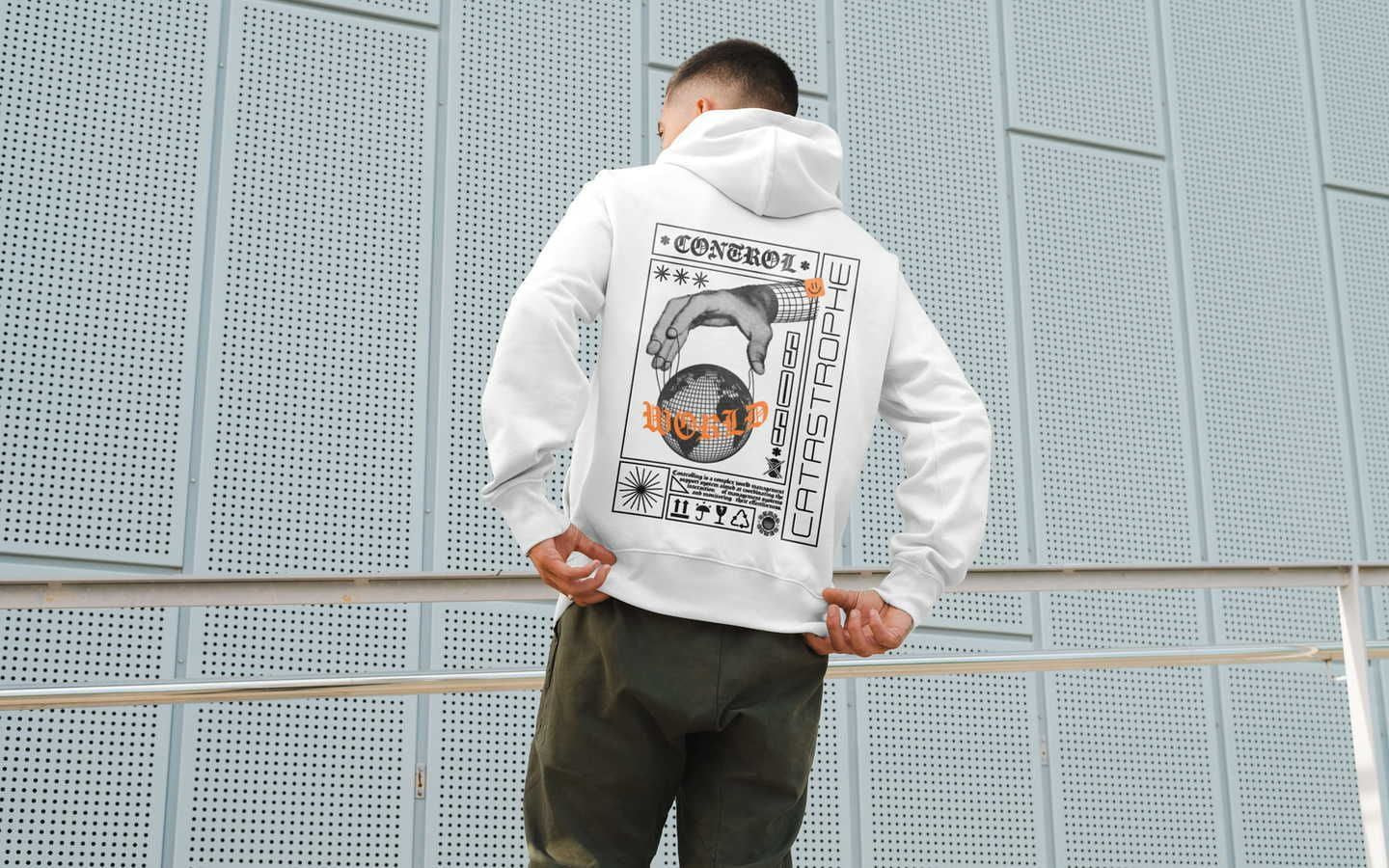Table of contents
Launching a sustainable clothing brand starts with defining your mission, understanding your target audience, and researching sustainable product ideas. From there, choose and design your products with purpose, then shape a brand story that reflects your values.
Whether you’re an entrepreneur looking to launch a sustainable fashion label or a designer who wants to expand into sustainable initiatives, this guide will walk you through everything you need to know about how to start a sustainable clothing brand from scratch.
What is sustainable fashion?
Sustainable fashion is a response to the negative impacts of the fashion industry. Instead of producing endless clothing at the expense of natural resources and workers, it focuses on eco-friendly materials, ethical practices, and responsible manufacturing that prioritizes people and the planet.
This can mean using materials like organic cotton, recycled polyester, and other biodegradable options, partnering with ethical manufacturers, and creating high-quality pieces that last.
Sustainable fashion also looks at the entire supply chain, from fair labor and raw materials to eco-friendly packaging and sustainability labels (more on this later).
By embracing recycled fabrics, high-quality materials, renewable energy, and slow fashion principles, brands can reduce their carbon footprint and create meaningful change through sustainable processes.
Launch a sustainable fashion brand in 6 simple steps
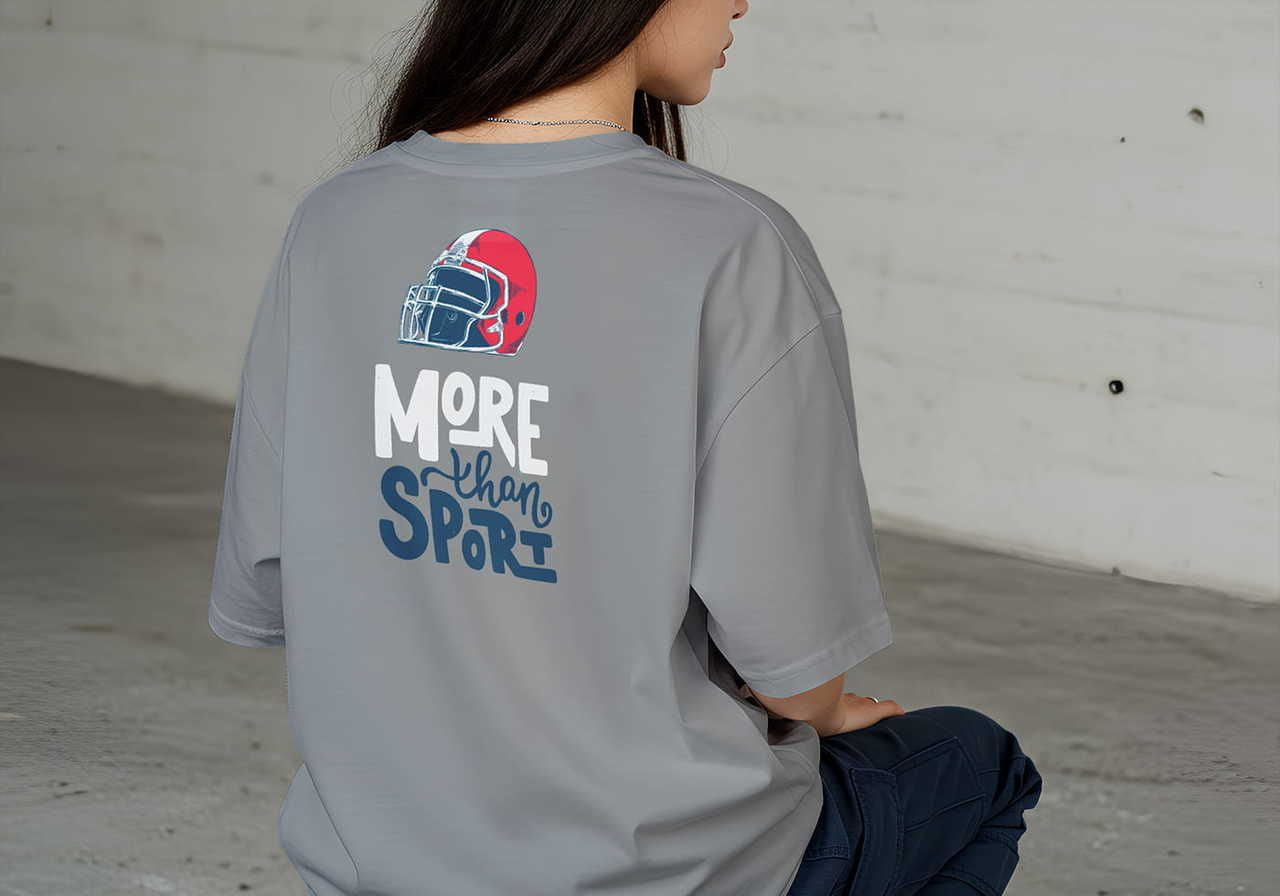
Let’s break down exactly how to start an environmentally-friendly apparel brand using a sustainable fashion business model.
1. Define your sustainability mission
Your sustainability mission is the backbone of your sustainable clothing brand. It explains what you stand for, the issues you want to address, and how your clothing line differs from traditional fast fashion.
-
Start with your why. What motivated you to start a sustainable fashion brand?
-
Choose your focus areas. Decide what matters most to you – eco-friendly materials, fair labor, slow fashion principles, renewable energy, or sustainable packaging.
-
Be specific and honest. Clear statements like “we use organic cotton and recycled polyester” build more trust than broad claims.
-
Set realistic goals. Aim for measurable progress, not perfection.
Rely on credible certifications when possible, and stay transparent about what you’re doing now versus what you’re working toward. Avoid vague claims without proof as this can lead to greenwashing, which harms your brand’s credibility.
2. Identify your target audience
To build a successful sustainable apparel brand, you need to know who you’re designing for. Globally, 85% of people have become more sustainable in the past five years, but millennials and Gen Z are leading the shift – making them the strongest audience for sustainable fashion.
From there, narrow your focus based on the niche you want to enter. Look at what competitors are doing, talk to potential customers, and learn what they value most in sustainable clothing.
This will help you see whether your sustainability goals match their buying motivations and guide you toward products that truly resonate.
3. Build a sustainable production plan

Your sustainable production plan depends on three pillars – eco-friendly materials, responsible manufacturing, and low-impact fulfillment.
Materials
Your materials are the foundation of your sustainable apparel brand, so choose fabrics thoughtfully. Here’s a quick breakdown of common conventional fabrics, their sustainable alternatives, and the environmental impact of choosing better options.
|
Conventional option |
Sustainable alternative |
Environmental benefits |
|
Conventional cotton Pros: Soft, breathable, widely used Cons: Heavy water use, pesticides, soil impact |
Organic cotton Recycled cotton Hemp |
Uses fewer chemicals and supports healthier soil. Lower water and energy use (especially recycled cotton). Reduces fashion waste through fiber recovery. |
|
Virgin polyester Pros: Durable, inexpensive Cons: Fossil-fuel based, non-biodegradable, sheds microplastics |
Recycled polyester (rPET) Bio-based polyester Natural-fiber blends |
Cuts reliance on virgin petroleum. Helps divert plastic bottles and textile waste from landfills. Produces fewer CO₂ emissions than virgin polyester. |
|
Conventional viscose or rayon Pros: Soft, drapey Cons: Chemical-intensive process, deforestation risk |
Tencel™ EcoVero™ |
Closed-loop production reduces chemical waste. Lower water and CO₂ impact than traditional viscose. Uses sustainably sourced wood pulp. |
|
Conventional wool Pros: Warm, durable Cons: Methane emissions, land use, animal welfare concerns |
Responsible Wool Standard (RWS) wool Recycled wool |
Improved animal welfare and land management. Recycled wool reduces energy and raw material use. Cuts textile waste by reusing existing fibers. |
|
Conventional leather Pros: Durable, long-lasting Cons: High water use, toxic tanning, animal welfare issues |
Vegan leather Recycled leather Plant-based leathers (cactus, apple, pineapple) |
Reduces chemical use and avoids intensive tanning processes. Lowers resource use by repurposing waste streams. Offers biodegradable or low-impact alternatives (depending on the plant source). |
Manufacturing
If you want to create your own fashion line from scratch, you’ll need to research eco-friendly manufacturers that can produce your clothing following industry-standard sustainability practices.
It’s important to choose partners who are transparent, implement ethical production, and follow environmentally responsible practices.
A reliable way to check this is by looking at their certification labels, which show how materials are sourced and whether proper labor and environmental standards are met.
-
Global Organic Textile Standard (GOTS). Verifies organic fibers, limits harmful chemicals, and checks for fair labor practices.
-
Global Recycled Standard (GRS) and Recycled Claim Standard (RCS). Confirms recycled content and responsible environmental and social practices.
-
OEKO-TEX® Standard 100. Ensures fabrics are tested for harmful substances.
-
Fair Trade Certified. Guarantees fair wages and safe working conditions.
-
Responsible Wool Standard (RWS). Confirms better animal welfare and land management for wool products.
-
FSC and PEFC. Ensures wood-based fibers (like Lyocell or ECOVERO™) come from responsibly managed forests.
Print on Demand
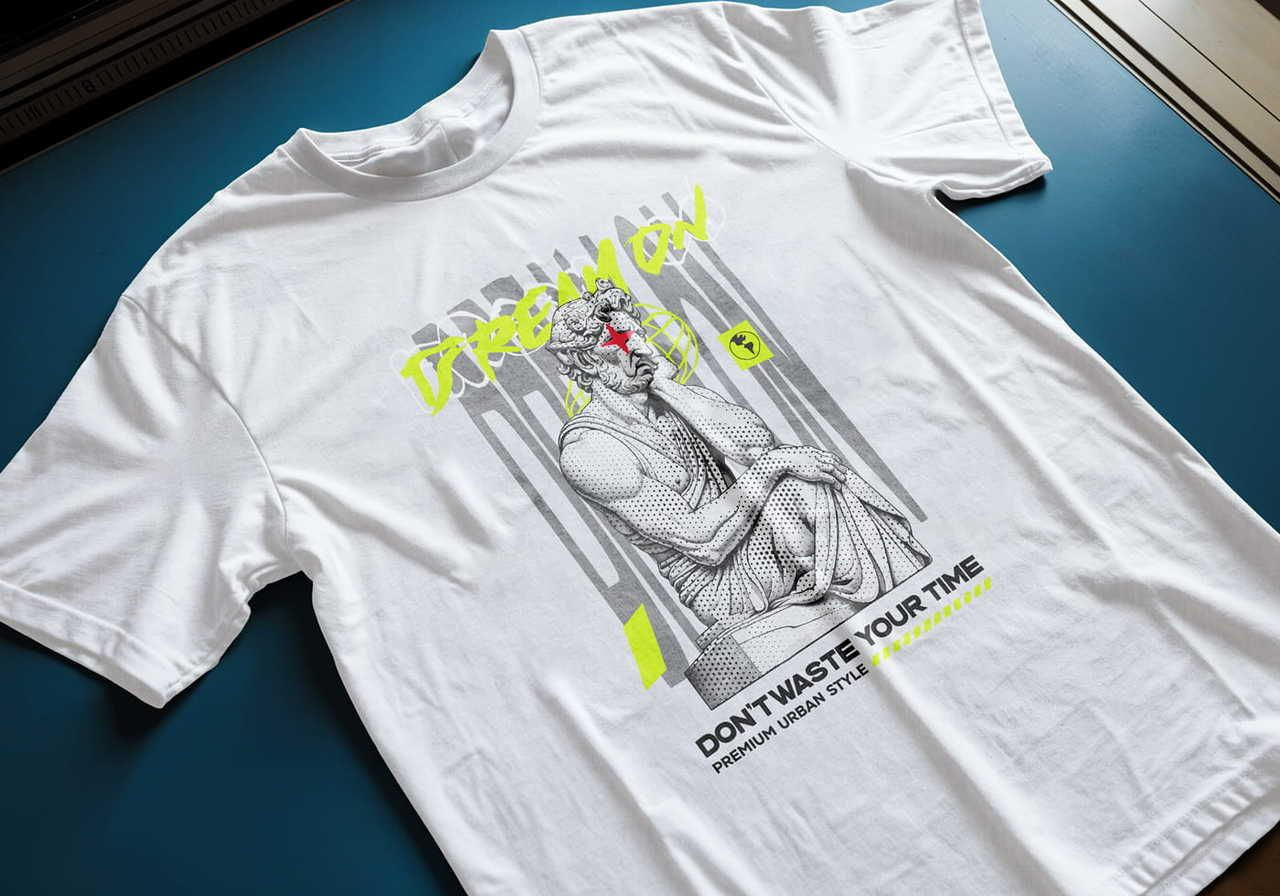
If you want to build a conscious clothing brand without large upfront inventory or costs, Print on Demand offers a sustainable, responsible path.
Here’s why:
-
No overproduction. Since items are only made when a customer orders them, you avoid excess stock and unsold inventory that often end up in a landfill.
-
Lower carbon footprint. Many POD providers like Printful fulfill orders from facilities close to the customer, cutting down shipping distances and reducing emissions.
-
Efficient resource use. POD lets you test designs or small collections without committing to large batches, limiting wasted materials if a design doesn’t sell or if demand changes.
Printful is committed to supporting eco-conscious brands in every possible way with on-demand production.
We use direct-to-garment (DTG) printing and direct-to-film (DTFlex) printing, which are more sustainable than traditional methods like screen printing because they use less water and water-based inks. Our three-step quality check also helps reduce misprints and returns, which means fewer wasted materials.
To make it even easier for brands to choose sustainable options, Printful offers a dedicated eco-friendly product category featuring items made from organic cotton, recycled fibers, and other low-impact materials.
Here are some of our best-selling eco-friendly products:
Did you know?
If you want to highlight your sustainability efforts, Printful has free downloadable templates you can use across your storefront, emails, and social channels.
4. Design your sustainable clothing line
After choosing your materials and production partners, it’s time to design your eco-friendly clothing line. This is what will set you apart, so focus on creating pieces that fit your niche, your mission, and what your target audience loves.
If you’re using Printful, the free Design Maker makes the whole process simple. You can play around with fonts, graphics, and templates to create designs quickly – no experience needed. For the best results, check our print file guidelines.
Not confident in your design skills? Bring in a pro to turn your ideas into polished artwork. Just make sure everything is original. Don’t use any logos or artwork you don’t own to avoid copyright or trademark violations.
5. Shape your sustainable brand identity
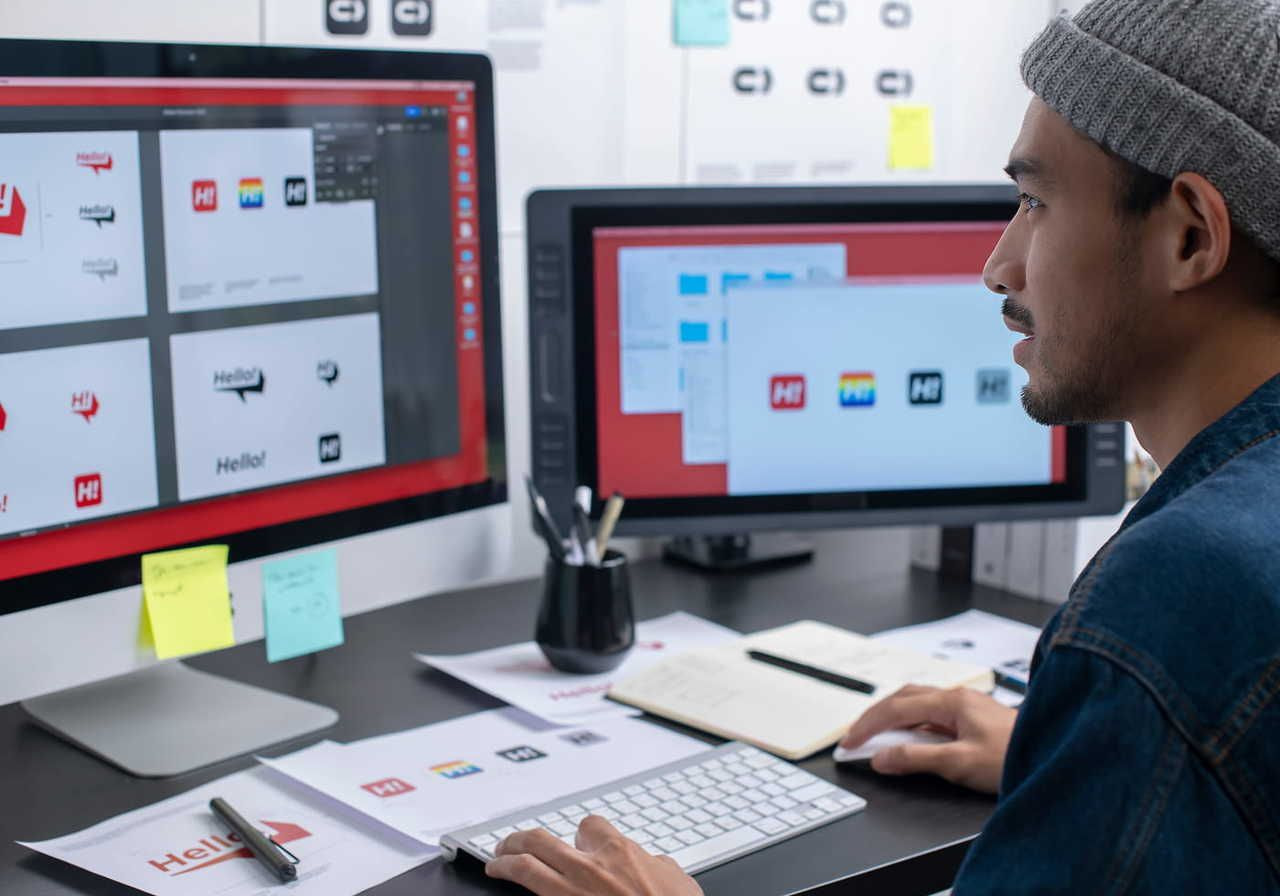
Your brand name and story set the tone for your entire sustainable clothing line. They show customers what you care about and why your brand exists.
When it comes to sustainable fashion, think about choosing a clothing brand name and story that reflect your values. Here are a few tips to help you get started:
-
Match your niche and style. Choose a name that reflects your aesthetic, like minimalist, earthy, or organic fabrics.
-
Use nature or eco-inspired words. Natural elements, materials, or sustainability themes can instantly signal your mission.
-
Keep it simple and memorable. Short, easy-to-spell names perform better for SEO, word-of-mouth, and social media marketing.
-
Try word pairing or alliteration. Combining two concepts or using light repetition can make your name more catchy and brandable.
-
Leave room to evolve. Pick a name that works even as you expand into new materials or product categories. Avoid narrow terms like “tees” or “hoodies.”
-
Check domain and trademark availability. Make sure the name is free to use across websites and social platforms.
Need help brainstorming? Try playing around with tools like Shopify’s Business Name Generator and see our dedicated article on how to come up with a brand name. Use them as idea starters and add your own creative twist to make the name truly yours.
6. Set up your store
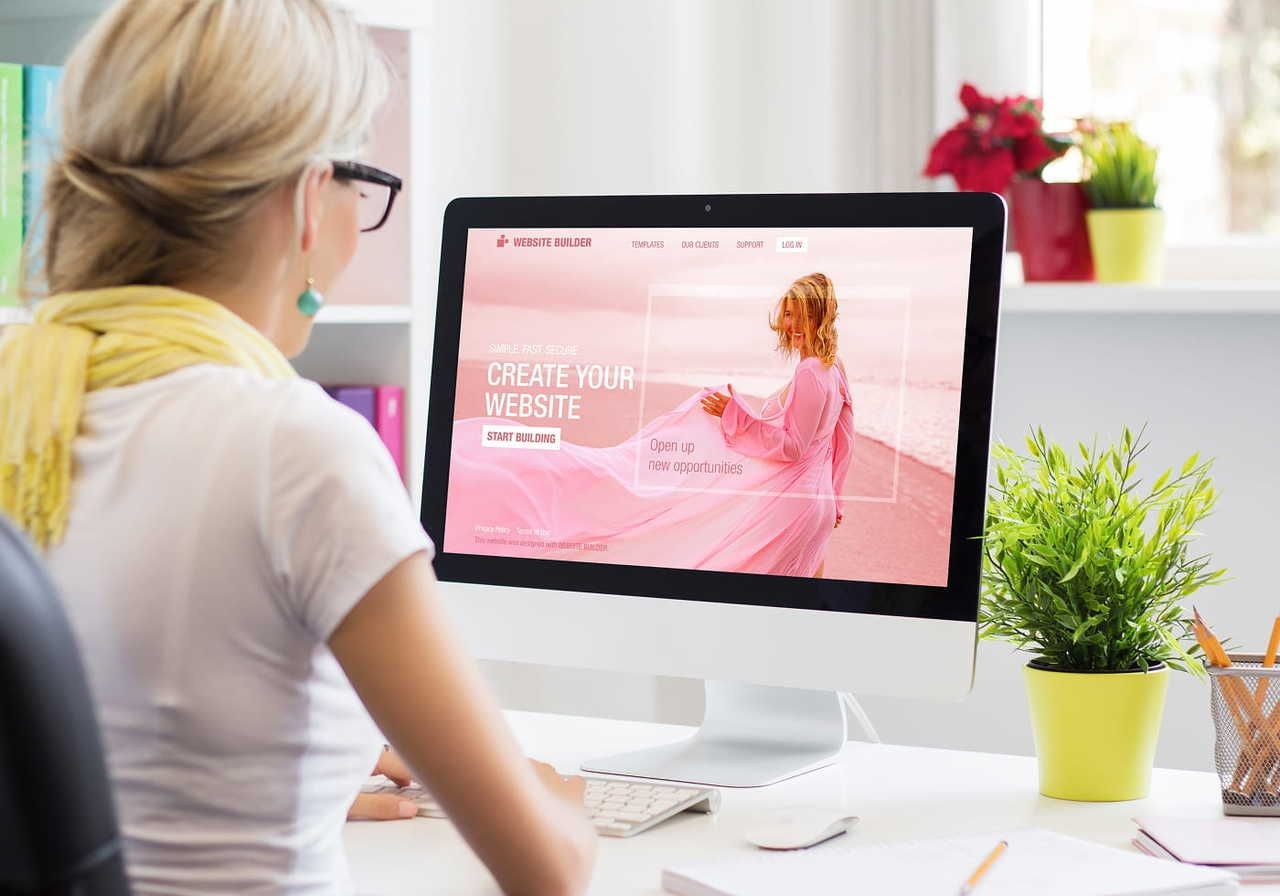
There are two main ways to launch your clothing brand – offline or online. Both have different environmental impacts, especially if you're aiming to build a sustainable business.
|
Type |
Pros |
Cons |
|
Offline store |
Local shoppers don’t need shipping Opportunity to source locally for store setup |
Requires energy for lighting, heating/cooling Requires producing inventory upfront (risk of waste) Customers often drive to the store (higher emissions) |
|
Online store |
No physical retail space or utilities No overproduction when paired with POD Customers shop from home (no transportation emissions) |
Shipping still generates carbon emissions Packaging waste if not chosen responsibly |
Overall, starting an online store is usually more environmentally friendly, especially when paired with sustainable materials and POD production.


Promote your sustainable fashion brand
Marketing your new fashion brand is all about showing people what you stand for and how your sustainable products make a positive impact. Use intentional, value-driven marketing to attract customers who genuinely care about sustainability.
Choose the right marketing channels
Focus on the platforms your audience uses most. Millennials and Gen Z lean toward Instagram and TikTok, making them ideal for visual storytelling. Think short videos, outfit shots, sustainability tips, and behind-the-scenes clips.
Pair it with email marketing or blog posts to share product launches and deeper insights about your brand. Start with one or two channels you can manage consistently, then expand as you learn what resonates.
Educate through valuable content
Sustainable fashion shoppers value transparency, so use your content to show what makes your brand different. Share any sustainable practices you adopt in your production process, why you chose specific materials, and the environmental impact you aim to make.
Whether it’s a TikTok short, an Instagram carousel, a blog post, or a product page highlight, keep your content simple, honest, and genuinely helpful.
Build and engage your community
Create a space where people can connect with your mission. Encourage customers to share how they style your pieces, repost user-generated content, and stay active in your comments. Polls, Q&A sessions, and design feedback are all great ways to make your audience feel involved and valued.
Highlight certifications and partnerships
If your products or manufacturers hold certifications like GOTS, OEKO-TEX®, or GRS, showcase them proudly. You can also team up with eco influencers, sustainability advocates, or local organizations to build credibility and reach people already interested in ethical fashion.
Measure, improve, and communicate growth
Track which marketing efforts bring the most engagement or sales, and refine your strategy as you go. Share your progress – whether you’ve increased the use of recycled materials, switched to biodegradable packaging, or launched a new sustainability initiative.
Customers appreciate brands that are transparent about their journey and committed to constant improvement.
Key sustainable fashion trends for 2026
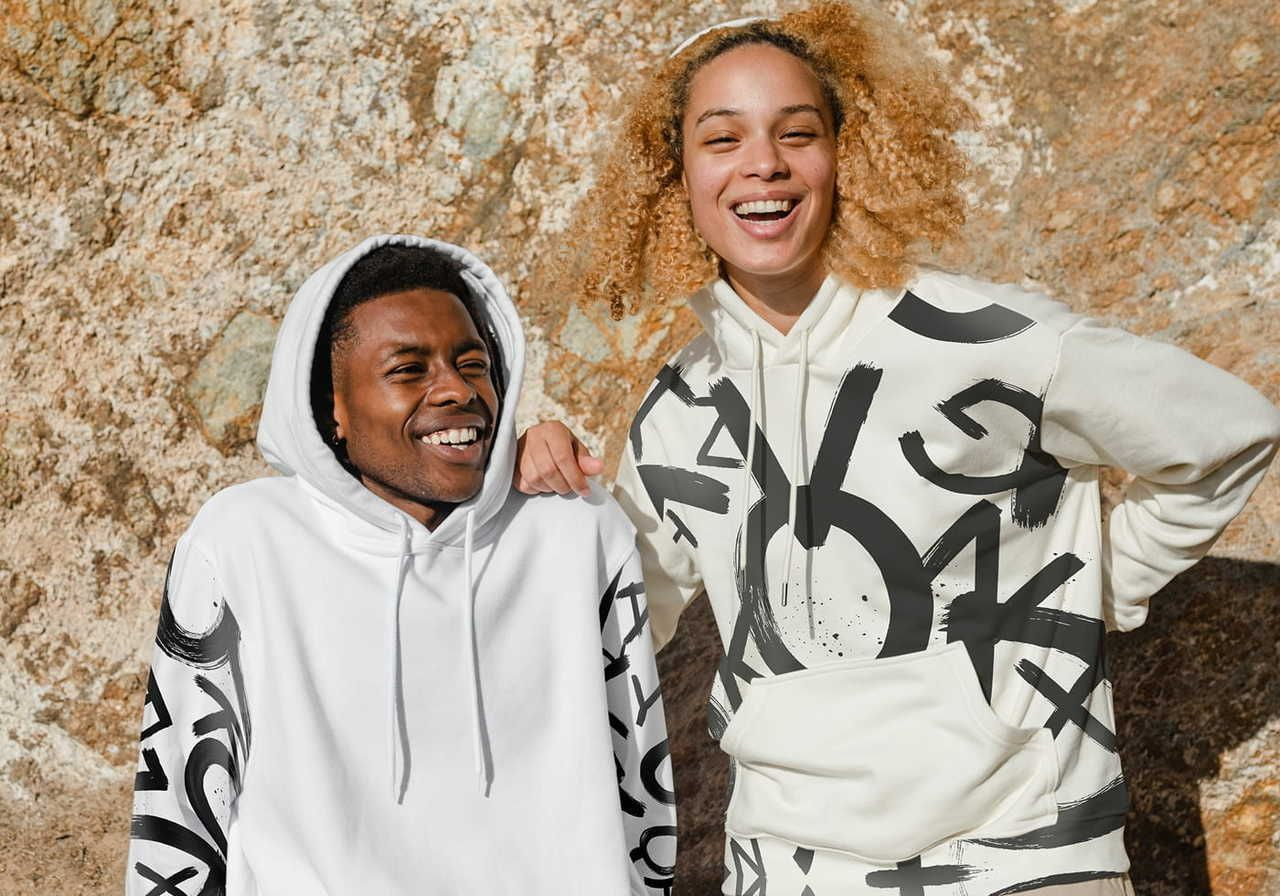
To stay ahead and stand out from the competition, here are the sustainable fashion trends expected to shape the year ahead.
More brands are adopting the circular economy by launching take-back programs or partnering with textile-to-textile recycling technologies to help close the loop and reduce fashion waste.
Tip: Start small by offering a repair, reuse, or return option for worn-out items.
More shoppers are embracing the access economy by renting clothes instead of owning them, especially younger consumers who want variety without the cost or waste of fast fashion.
Tip: Consider creating a small rental-only collection designed to be loaned out repeatedly and introduce your brand to eco-minded renters.
On-demand manufacturing is replacing overproduction as brands shift toward made-to-order fashion that cuts waste, reduces environmental impact, and avoids the downsides of mass production.
Tip: Start with POD to produce only what you sell, test new designs risk-free, and avoid unsold inventory entirely.
Minimalist fashion is gaining momentum as shoppers look for long-lasting, timeless pieces.
Tip: Create high-quality essentials in neutral tones and clean silhouettes that customers can style multiple ways to keep cost-per-wear low.
More shoppers expect transparent supply chains, wanting clarity on how products are made, who makes them, and their environmental impact.
Tip: Share clear information about your materials, manufacturers, and production practices on your product pages or About section to build trust with sustainability-minded customers.
Consumer demand for ethical options is driving major growth in vegan fashion, making animal-free materials accessible at nearly every price point.
Tip: Add a few vegan-friendly pieces and clearly label them to attract shoppers actively looking for ethical alternatives.
How to start a sustainable clothing line with Printful

Remember how launching an online store is easier than opening a physical one? With Printful, it gets even simpler.
Our platform integrates seamlessly with major eCommerce platforms and marketplaces like Shopify, Amazon, and Etsy, so you can launch your sustainable clothing brand instantly.
Here’s how Printful works:
-
Sign up for a Printful account.
-
Connect it with your chosen eCommerce platform or marketplace.
-
Pick and design your products, then add them to your storefront.
-
Set up shipping and payment methods.
-
Start marketing your products and let us handle fulfillment as orders come in.
For step-by-step instructions, follow our platform-specific guides:
What’s in store for fashion?
The future of the fashion industry is shifting toward responsibility, transparency, and better choices. As more shoppers look for brands that care about people and the planet, sustainable fashion companies have a real chance to stand out.
By choosing eco-friendly materials, working with responsible partners, designing with purpose, and using POD to avoid waste, you’re already building a stronger, cleaner foundation for your fashion line. Add honest storytelling and thoughtful marketing, and you’re well on your way.
Sustainable fashion isn’t just where the industry is heading – it’s your chance to help shape a more sustainable future.
FAQ
The 7 R’s of sustainable fashion are Rethink, Reduce, Reuse, Repair, Resell, Recycle, and Repurpose. They encourage people to make smarter choices, buy less, use what they already have, fix clothing items instead of throwing them away, and keep garments in use for as long as possible.
The 30-wear rule encourages customers to buy only items they plan to wear at least 30 times. It’s one of the most popular eco-friendly practices for reducing waste and avoiding impulse purchases. If you don’t see yourself wearing something often, it’s probably not a sustainable choice.
The cost depends on your business model. With traditional manufacturing in the apparel industry, costs can reach thousands due to inventory, production, and storage. With Print on Demand, you can start for much less since there’s no need to buy inventory upfront.
The 4 R’s of sustainable fashion are Reduce, Reuse, Recycle, and Repair. These principles form the foundation for more detailed frameworks like the 7 R’s, focusing on using fewer resources, extending the life of clothing, and keeping items out of landfills.



Jordana is a content writer with over 6 years of experience in content writing and technical writing. Her not-so-secret passion is breaking down complex ideas into clear, straightforward content, whether it's explaining tech concepts or crafting stories that connect. When she's not writing, you'll find her enjoying good sushi or falling down movie trivia rabbit holes.





